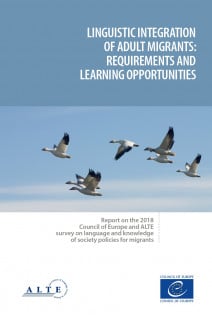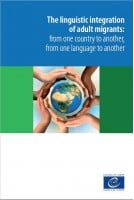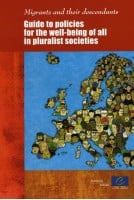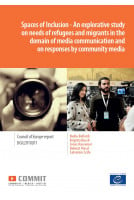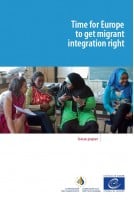Report on the 2018 Council of Europe and ALTE survey on language and knowledge of society policies for migrants
Migration is one of the most contentious issues in current international politics. To better understand this issue, the Council of Europe conducted an extensive survey among Council of Europe member states on requirements regarding language and knowledge of society that migrants must meet to obtain access to the country, residency or citizenship. This report, based on that survey, will be relevant to anybody interested in migration and language policy.
It pays particular attention to vulnerable learner groups and the degree to which member states provide migrants with adequate learning opportunities. In addition to discussing current trends, it also shows that language and knowledge of society requirements were gradually made stricter between 2007 and 2018. Based on the survey results and on available research, the authors formulate a number of policy recommendations, emphasising the importance of providing adequate learning opportunities and warning against requirements that might hinder, rather than foster, integration.
LIST OF FIGURES LIST OF TABLES FOREWORD BY THE COUNCIL OF EUROPE FOREWORD BY ALTE EXECUTIVE SUMMARY INTRODUCTION
The organisation of the 2018 survey
Council of Europe states responding to the 2018 survey
The Common European Framework of Reference for Languages (CEFR)
Structure of the report
Chapter 1 – ANALYSIS OF THE SURVEY DATA
1.1. Language and knowledge of society requirements
1.2. Tests
1.3. Learning opportunities
Chapter 2 – VULNERABLE GROUPS
2.1. Minors, low-literate learners, refugees
Chapter 3 – DEVELOPMENTS FROM 2007 TO 2018
3.1. Pre-entry requirements
3.2. Permanent residency requirements
3.3. Citizenship requirements
Chapter 4 – DISCUSSION
4.1. Using language and knowledge of society tests for integration purposes
4.2. The lack of agreement about what level is needed for the same context
4.3. The CEFR – its intentional purpose and how it is (mis)used
4.4. Providing migrants with opportunities to learn
4.5. Vulnerable groups – learning a language and passing a test is not equally easy for all
4.6. KoS tests as implicit language and literacy tests
Chapter 5 – RECOMMENDATIONS
5.1. Learning opportunities
5.2. Promoting integration
5.3. Paying particular attention to vulnerable groups
5.4. Test quality
5.5. Responsible use of tests
5.6. Responsible use of the CEFR
REFERENCES AND RECOMMENDED READING APPENDIX
